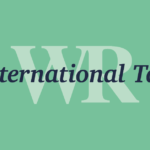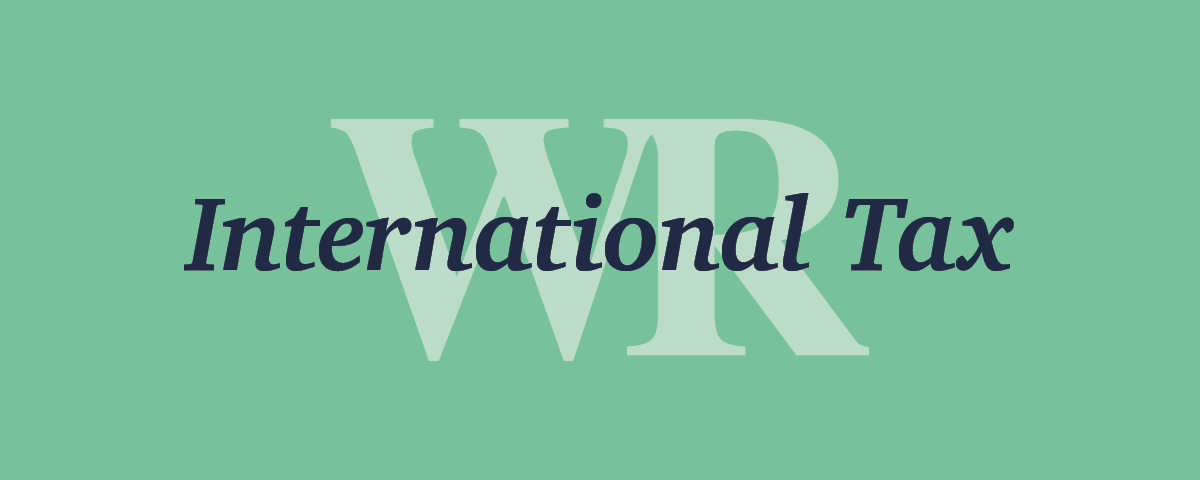
Round Three of Tariffs – Reciprocal Tariffs Have Arrived
February 18, 2025
WebsterRogers Expands Footprint to South Carolina’s Upstate, Appoints Laurence Fritz to Lead Market
February 19, 2025The Critical Need to Integrate Tax Advisers into Executive Strategic Business Planning

In today’s environment of constant business volatility, tax considerations often find themselves pushed to the sidelines in strategic discussions. However, integrating tax planning into broader business strategies is no longer optional—it’s critical for capturing value, mitigating risk, and maintaining a competitive edge. Just as business conditions evolve rapidly, so too does the tax landscape. Why integrating tax into strategic business planning Is essential. Aligning strategic thinking with tax insights leads to smarter, more agile decision-making.
The New Reality: Complexity and Risk Without Tax at the Table
Companies are increasingly realizing the value of collaborating closely with tax advisers to stay ahead of changes that could impact their operations. Tax issues today span far beyond simple compliance. They touch every facet of a business—from trade and supply chain management to manufacturing site selection and immigration policies. Actions taken in one area can trigger significant, sometimes unforeseen, tax consequences elsewhere.
Ignoring tax considerations risks missing out on valuable credits and incentives, and can lead to inefficiencies in tax rates. Strategic decisions made without a tax lens could ultimately cost companies far more in the long run.
2025: A Year of Big Changes on the Horizon
Looking ahead, 2025 promises to be a pivotal year for U.S. tax policy. Congress is expected to pass legislation aimed at extending many provisions of the 2017 Tax Cuts and Jobs Act (TCJA)—an extension estimated to cost around $4.6 trillion. Additionally, proposals introduced by President-elect Donald Trump, including the elimination of taxes on overtime pay and a proposed 15% corporate tax rate for domestic manufacturing, could introduce further sweeping changes, with an estimated $3.8 trillion impact over the next decade.
The environment is also shifting beyond tax policy alone. Rapid changes in trade policy, such as the introduction of new tariffs, could force companies to rethink their supply chains, relocate manufacturing operations, and restructure their business models. In this volatile environment, agility isn’t just an advantage—it’s a necessity.
A Blueprint for Seamless Tax Integration
For businesses seeking to embed tax into their strategic DNA, the path forward includes several key steps:
- Evaluate Current Tax Engagement: Regularly assess how decision-makers and tax advisers are communicating. Are tax insights being shared early enough to influence decisions?
- Strengthen Communication Channels: Establish direct, efficient communication lines between executives and tax teams. Set a strategic consultation schedule to ensure consistent engagement.
- Review and Adjust: As the business grows and external conditions evolve, periodically revisit and refine tax integration processes to maintain alignment with new challenges and opportunities.
The Strategic Advantage: Future-Proofing Through Tax
Forward-thinking companies are placing tax advisers at the heart of strategic discussions—not as afterthoughts, but as key partners. This proactive approach ensures that organizations are not only prepared for new tax legislation but are also positioned to manage their operations more efficiently and capture emerging opportunities.
In a world where agility is rewarded, the collaboration between tax and executive management is more important than ever. Together, they can monitor the fast-changing landscape and respond swiftly and strategically, securing a stronger future for the business.


